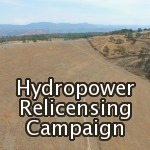Article from Stockton Record.
http://www.recordnet.com/article/20150306/News/150309749
By Alex Breitler
Posted Mar. 6, 2015 at 8:00 PM
State water watchdogs may allow more water to be pumped south from the Delta this month, but only under “very limited circumstances.”
The decision, announced late Thursday, came two weeks after an emotional hearing in which south San Joaquin Valley farmers and farm workers pleaded for more Delta water, saying their livelihoods were at stake.
Also hanging in the balance as California careens into a fourth year of drought, however, is the fate of threatened fish species in the fragile estuary. The State Water Resources Control Board already has temporarily waived some fish protections in the Delta in order to save more water in upstream reservoirs and allow for a modest amount to be pumped south.
Thursday’s decision goes a little further, opening the door to higher levels of pumping but only if it can be justified as necessary for basic health and human safety.
The decision “strikes a reasonable balance,” state board Executive Director Tom Howard wrote, adding that “unconditional approval of (higher) exports would tip the balance too far in favor of exports, with resulting unreasonable effect on fish and wildlife.”
Ara Azhderian, water policy administrator with the San Luis Delta Mendota Water Authority south of the Delta, called the decision a “positive step.”
“Maybe it doesn’t go as far as it should have in some areas, but certainly it goes in the right direction,” he said. “We are happy to see that progress.”
Environmentalists were less enthusiastic. In an email blast on Friday, The Bay Institute warned of a possible “countdown to extinction” as the state relaxes rules on how much water must flow through the Delta. March is an important month for several species.
Stockton environmentalist Bill Jennings, with the California Sportfishing Protection Alliance, said the decision was a partial “cave” to the water users, though Jennings acknowledged that the state held firm on refusing to unconditionally grant higher pumping levels.
“They keep cutting the baby in half,” Jennings said. “Unfortunately, when you’re down to the last 1 percent to 2 percent of (fish) species, you don’t have a lot of room to give.”
The amount of water in question is relatively small compared to how much is typically exported from the Delta or allowed to flow through it for fish. But this year’s debate shows how, during times of scarcity, every drop is considered precious.









